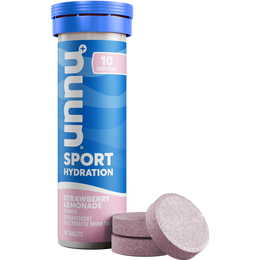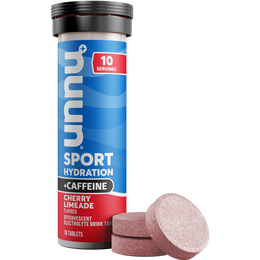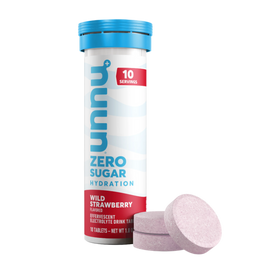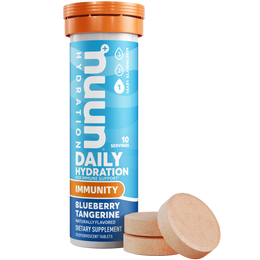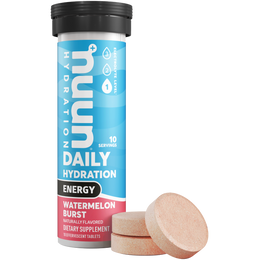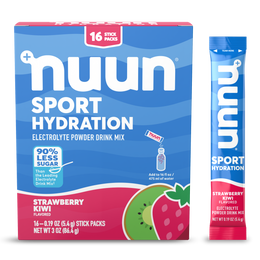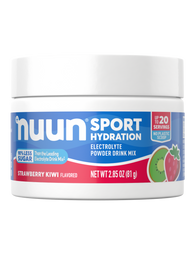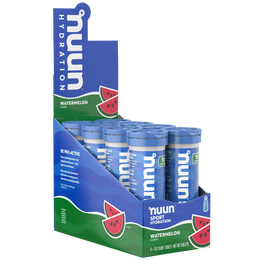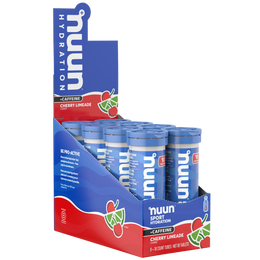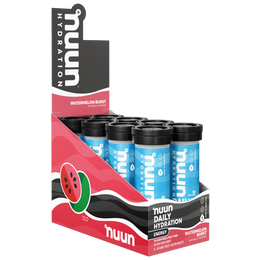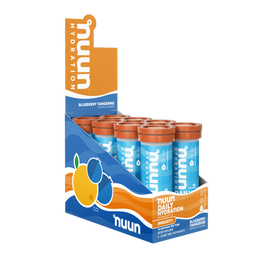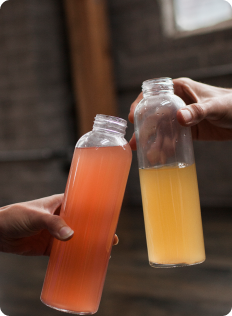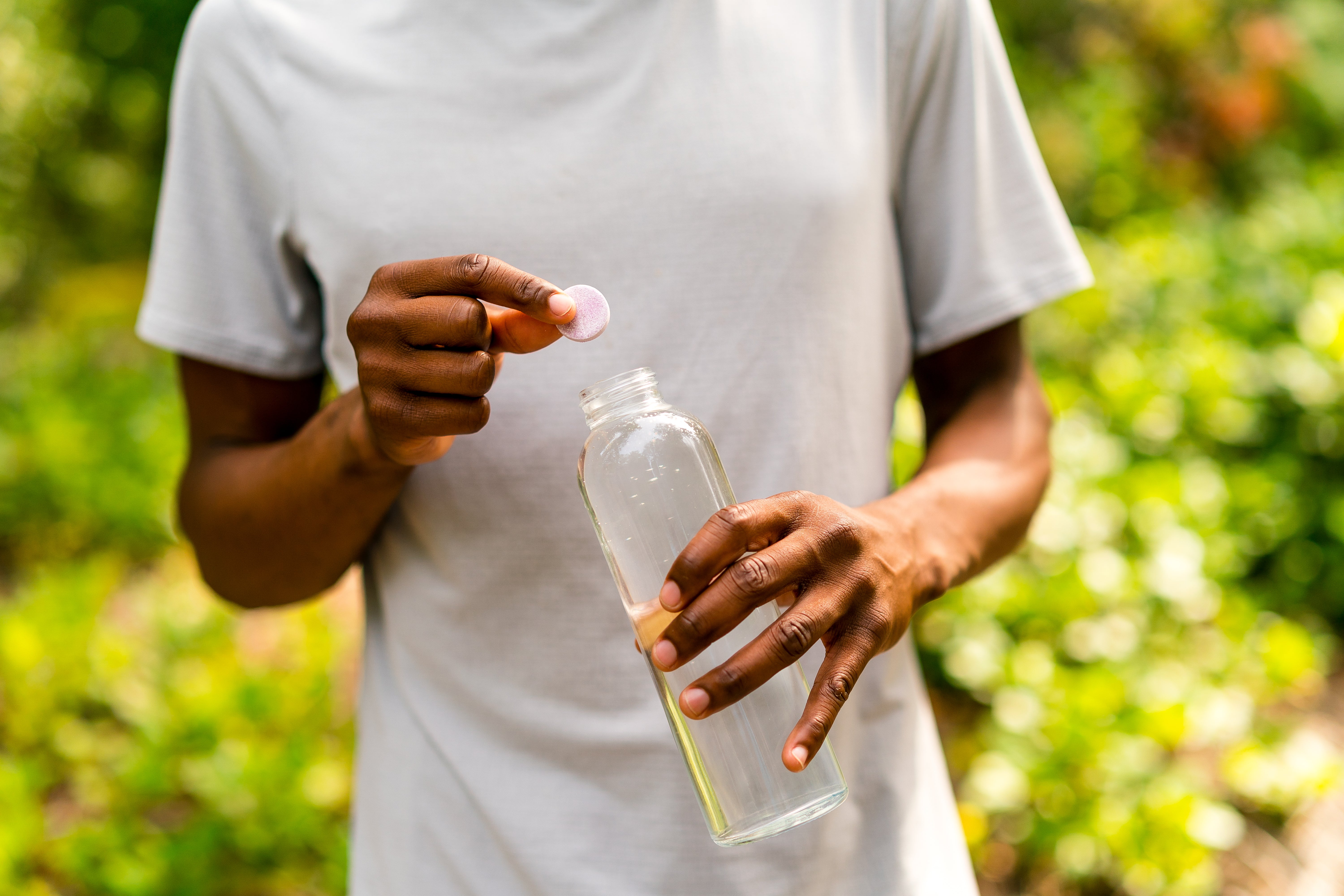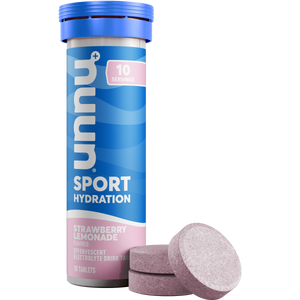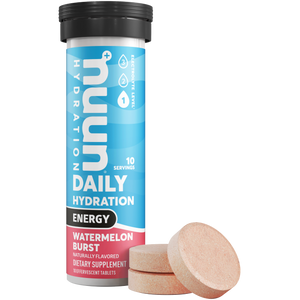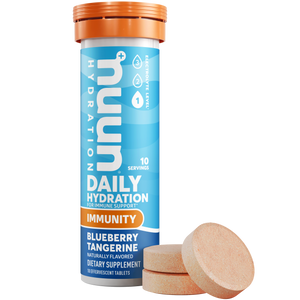What is Heart Rate Variability?

The deeper you look into improving your training plan or your overall health, the more this term heart rate variability pops up. Is it good? Is it bad? What makes it good or bad? Do you have to be hooked up to a bunch of fancy scientific wires just to know what all this means? Short answer: no.
While some traditional health indicators like BMI have been called into question, HRV is an indicator of your daily physiological health. This isn’t a grade on a scale that you can pass or fail. It’s a key measurement to understand how to take healthier steps.
You can actually improve your lifestyle if you understand how to track HRV, and if you have a FitBit, Apple Watch, Garmin, Whoop, or any other wearable, you likely have access to this information already. Now, what does it all mean?

Improve Heart Rate Variability With Better Hydration
Hydration is a vital component of heart rate variability and overall health. With the power of electrolytes, Nuun Sport hydrates better than water alone.
Shop Nowso what is heart rate variability?
Heart rate variability is a measured time between heartbeats for a period of, say, 24 hours. During this time period, the change in heartbeat is so subtle that you wouldn’t even notice it on your own. It’s not an arrhythmia or irregular heartbeat, but a miniscule millisecond of a difference.
While it is understood as a measurement of an autonomic system (something you don’t control on your own), there are two behaviors in your nervous system that influence your HRV: sympathetic and parasympathetic behavior.
The two are balanced, so if you go for a sprint (sympathetic) you’ll inhale and exhale (parasympathetic) at a higher rate than before the sprint. Here’s a quick breakdown of what sympathetic and parasympathetic behaviors are:
Sympathetic: stress and exercise.
Parasympathetic: nutrition, rest and recovery, and hydration.
These two like to have a balanced tug of war. One, getting you ready to go for a run, the other asking you to relax and take it easy.
Q&A: Understanding Heart Rate Variability

Why should I pay attention to my HRV?
Back in the day, you needed to be hooked up to an ECG (electrocardiogram) to know what your HRV was. But even then, doctors were typically using this information
That’s right! Most wearables and heart rate monitors are capable of measuring HRV. Because of that, you can monitor your heart health every day. Keeping track of your HRV can help you avoid lifestyle habits that could be bad for your heart, mind, and body. Plus, the application of HRV continues to develop, so the earlier you start tracking it, the better chance it could help identify health issues down the line.
Aside from the long-term benefits, a short-term bonus is that you’ll have a better sense of your overall daily health and the opportunity to improve your diet and exercise routines. For example, you can see for yourself how alcohol and sugary beverages affect your body vs. healthy sports drinks. With quick substitutions like this, along with improved sleep patterns and exercise, you can see your everyday healthy choices reflected in your HRV.
"Having a better understanding of your body and mind and having the time to deconstruct the data can change your approach to life."
What is a good heart rate variability?
A good heart rate variability has a wider range. This study states “[r]educed HRV and inhibited parasympathetic activation increase vulnerability to future stress.” So if you’re having a difficult week at work and you have a low HRV, you’re more susceptible to stressors. If you improve your HRV, you will be better able to deal with physical or mental stress when it comes up.
When you look to improve heart rate variability, you also help reduce the age of your heart. The older you get, the lower your HRV gets — but this study suggests that meditation could decrease the age of your heart. Pretty cool!
While a good HRV helps your fitness and wellness goals, it may also help in other aspects of your life. Your healthier, adaptive habits can improve your mood, alertness, and ability to overcome stress. You can get work done so it doesn’t pile up on you next week. You can better address personal woes to improve your relationships. Having a better understanding of your body and mind and having the time to deconstruct the data can change your approach to life.
How do you improve heart rate variability
There are plenty of good reasons to improve heart rate variability.
Recovery is a key element to your HRV, and you can boost yours with two powerful tools: hydration and sleep.
Healthy hydration: The science suggests that dehydration has a negative impact on heart rate variability and its recovery after exercise, so it’s important to prioritize a healthy hydration routine. This will help improve your HRV and mitigate the effects of an arduous workout.
As you aim to drink more water, remember that adding electrolytes to your H2O equals better hydration. Electrolytes help your body absorb water, so an electrolyte-packed supplement like Nuun Sport will hydrates better and faster than water alone.
Healthy sleep: It’s not just the quantity of sleep you get —the quality matters, too. Lifestyle factors like stress, drinking alcohol, and sleep hygiene can all get in the way of an optimal night of restorative sleep.
As you address any variables that you think might be affecting your sleep cycles, you can also set yourself up for a better bedtime with Nuun Rest, which contains ingredients like magnesium and tart cherry to support relaxation and recovery.

How to use HRV today
Now that you have a better understanding of what HRV is, how are you going to make positive steps to improve? If you have a fitness watch, take a look at it right now to see where your HRV stands at this very moment. See the trends in the past as well.
Are you getting enough sleep? Have you been drinking enough water? How’s the exercise routine been? Which days you feel sluggish, and which ones do you feel supercharged? Chances are, the correlation between your HRV and the quality of your day are noticeably interconnected.
If the ins and outs of heart rate variability still feel overwhelming, try this simple comparison: Think about the best singers in the world, like Aretha Franklin and Adele. Their incredible vocal range and heart are what make them so special.
You want your heart to sing too. A good HRV means greater range and a healthier heart — all it needs is a little respect.
